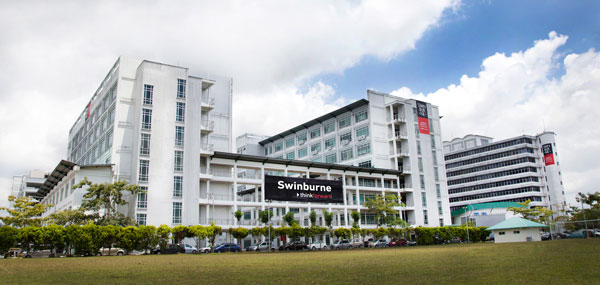KUCHING – Swinburne University of Technology Sarawak Campus and Sarawak Information Systems Sdn Bhd (SAINS) have joined forces to conduct research on two projects costing about RM600,000.
The Australian university branch campus and SAINS, a software solutions and ICT services provider, will explore the development of the next generation network video recorder.
They will also look into developing the framework for measuring the impact of rural ICT programs implemented by SAINS.
Researchers and engineers from the two teams hope to realise a high performance network video recorder that could simultaneously acquire and store multiple surveillance video feeds in high definition resolution.
The system is expected to be capable of real time streaming of live high definition surveillance video with the capacity to process large quantities of feed for analytics.
The ambitious venture is in response to an increasing global demand for a high quality surveillance video system.
On the rural ICT program, the university will assist SAINS with the analyses of various corporate social responsibility rural ICT programs implemented by SAINS to bridge the urban-rural digital divide.
A key program to be studied is the government-linked company’s Rural ICT Guided Home-based Technopreneur (RIGHT) program conceptualised and developed by its CEO in 2000 with the vision to leverage ICT as a core component in Sarawak’s socio-economic development .
The program was launched in collaboration with the State Ministry of Rural Development in 2006 and has since generated significant interest and recognition locally and internationally.
RIGHT trains “technopreneurs” from among the rural youths who would in turn provide ICT services to the community. This reduces the cost of setting up and maintaining internet centres, provides employment and reduces rural-urban population migration.
Swinburne Sarawak researchers will in collaboration with SAINS undertake a scholarly research project on the socio-economic impact, community participation and in-situ human capital formation of RIGHT and other similar programs.
From the study, a framework for effective rural ICT adoption will be proposed and endorsed as a strategy for sustainable rural development, further bridging the urban-rural digital divide. With such scholarly support, it is hoped that the framework can be adopted into the government rural development policy, thus enhancing further potential funding opportunities.
The two research projects will allow SAINS engineers and researchers to access Swinburne Sarawak’s facilities and vice versa, and work closely with researchers at the university.
The close interaction will enable both parties to appreciate the opportunities and constraints within academia and industry, said Associate Professor Wallace Wong, Director of Research and Consultancy Office at Swinburne Sarawak.
“Through interaction with the industries, our staff could bring themselves up to date professionally with the latest and the best in the industry. This will eventually translate to the delivery of courses which are in tune with the needs and progress of the industries,” Wong said.
He added that while research outcomes in terms of publications and postgraduate completions are important, the university’s emphasis is to create real impact from its research for the benefit of the industries and the community it serves.


